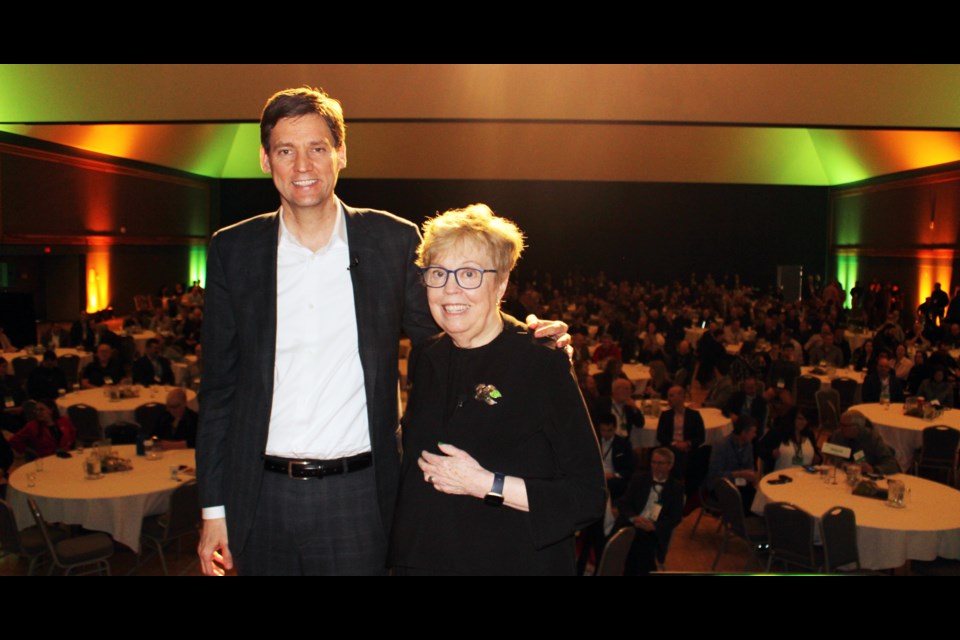The permitting phase for natural resources projects takes too long in British Columbia.
Eby admitted that Friday to the crowd of 600 delegates at the BC Council of Forest Industries convention in Prince George, acknowledging that lengthy delays to approve mines, forestry developments and housing projects are far too prevalent and he vowed to fix a broken system.
“I know that the state of permitting in the province is unacceptable, it’s too slow, it’s too complicated, and many governments have grappled with it and failed to address it,” said Eby. “It needs to be addressed. I saw it first as housing minister working with people in the housing sector who wanted to build and had to deal with five ministries and in some cases multiple years before they could put a shovel in the ground. Bureaucratic backlogs and delays are unacceptable.”
“We’re going to retain our high standards but we’re going to reform our permitting program to make sure that’s it’s timely and predicable for people and that it works. In the meantime, we’re bringing on 40 additional staff to work through the backlog within the permitting system.”
Eby admitted some of the delays are out of the province’s hands, with federal, municipal and First Nations jurisdictions adding to the complexity of permitting.
“It’s an issue I’ve raised with the federal government and there’s enthusiasm on their side to get permitting times down, too, and find other ways to work together,” said Eby.
The scarcity of commercially viable fibre has shuttered mills all over the province B.C. and has created uncertainty in the forest sector. In meetings with Eby earlier in the day, convention delegates expressed their concerns about timber supply and the lack of a long-term economic strategy on which to base their forest operations. He told them steps were being taken to reduce slash-pile burning to create more fibre for pulp mills and give loggers quick access to salvage areas burned in recent years by wildfire.
“Government can only do so many things at once and without clear direction to government officials at a political level we do run the risk of a bunch of things done halfway,” said Eby.
“The vital message that I’ve heard certainly from the sector is predictability, they need to know where the trees are coming from and that’s basic for the forest industry. So our goal as a government is to deliver that. We’ve had lots of challenges, we’ve had wildfire, we’ve had the end of the beetle-killed wood and court decisions that have resulted in injunctions around issuing permits.“
Resource companies are having to adjust to implementation of the Declaration on the Rights of Indigenous Peoples Act in 2019, which established for the 205 B.C. First Nations a more prominent role in land-use management and more ownership in resource projects.
“We know that the era of litigation and fighting First Nations as the predominant response is over and big changes are necessary,” said Eby. “We have to address the legal rights and interests of Indigenous rightsholders in the province. That is the law in Canada.
“Regardless of which government you would be working with, it would be the same situation and so we’re working hard to provide those avenues for the forest industry and First Nations partners to work together.”
Eby credited the influence of COFI for convincing the government to double the rate o revenue of sharing with First Nations for economic development conducted on their traditional territories.
Forest products are touted as a low-carbon building material account for about 30 per cent of the province’s exports and Eby said the government remains committed for trying to grow those international markets and in late May he will head a trade mission to Singapore, Korea and Japan. He also vowed to fight softwood duties with the United States that add to the cost of building homes south of the border.



